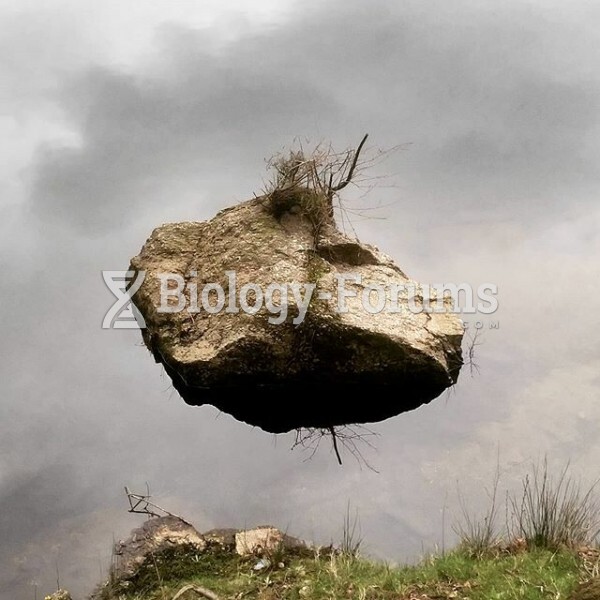This topic contains a solution. Click here to go to the answer
|
|
|
Did you know?
Cancer has been around as long as humankind, but only in the second half of the twentieth century did the number of cancer cases explode.
Did you know?
Approximately one in four people diagnosed with diabetes will develop foot problems. Of these, about one-third will require lower extremity amputation.
Did you know?
The calories found in one piece of cherry cheesecake could light a 60-watt light bulb for 1.5 hours.
Did you know?
There are more nerve cells in one human brain than there are stars in the Milky Way.
Did you know?
In the United States, an estimated 50 million unnecessary antibiotics are prescribed for viral respiratory infections.
 Earth’s history spans 4.5 billion years. Geologists and paleontologists have pieced together the his
Earth’s history spans 4.5 billion years. Geologists and paleontologists have pieced together the his
 Rock the leg to create movement at the hip joint. Apply passive movements to mobilize knee and hip ...
Rock the leg to create movement at the hip joint. Apply passive movements to mobilize knee and hip ...





